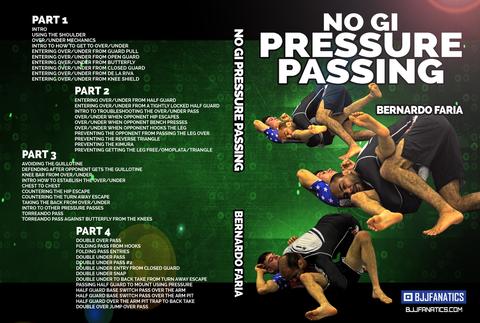What could I have done differently? It’s the obvious question to ask, but answering it honestly requires an objective self-analysis that a lot of people would rather not do. Still, if you want to improve from your losses, it’s an important to take a long hard look at your performance.
When you’re looking back on your losses, its tempting to look for external factors to blame.
You felt a little sick, or the ref wasn’t very good. Blaming things like this is good for your ego, but bad for your development. It isn’t that these things can’t influence how a match turns out. It’s that you should look for ways to win in spite of them. You felt a little sick? Was that nerves? Was there someway you could have better managed your anxiety? The ref made a bad decision? Did you miss an opportunity to submit your opponent and take it out of the ref’s hands?
No matter how stacked the circumstances were against you, your focus should always be on what you could have done better to win.
If you blame bad luck or outside forces, then you’ll see no opportunity for improvement. You just need to get luckier next time. If you accept responsibility for the fact that you didn’t do what it took to win, then you’ll be able to see the things in your game that need work.
Another way you might be tempted to handwave your loss is to say something like “my opponent was just better.” Maybe you had to fight a higher rank in a no-gi division, or maybe you ran into a pro athlete at a regional tournament. This certainly isn’t a way to save your ego, you’re acknowledging that your opponent was better. It is, however, intellectually lazy. If you say that your opponent was just better, or that he should have won, you’re ignoring the part you played. Someone being better than you means that they make the right decision more often, but that doesn’t mean you couldn’t have made more good decisions during the match and come out the winner. Matches against opponents far better than you are precious, because they show you how you hold up under the worst circumstances. Chances are, they pressured you into making quite a few mistakes, and its important to identify those so you don’t make them again.
It can be hard to even look at the matches you lose, let alone analyze them critically, but lessons aren’t learned automatically. If you don’t look for things you can do better at in the future, then a loss is just a loss. However, if you accept responsibility for your loss, and work on the things it exposed, then your defeats can become powerful lessons that you’ll carry with you throughout your life.
John Brashhear.
Here is 5x BJJ world champion Bernardo Faria‘s new series, No Gi Pressure Passing. Building on the incredible success of his Pressure Passing instructionals in the Gi, this system will bring that same pressure to your No Gi game! Get it here!
The post The Questions You Need Ask Yourself When You Lose a Jiu-Jitsu Match appeared first on Bjj Eastern Europe.

